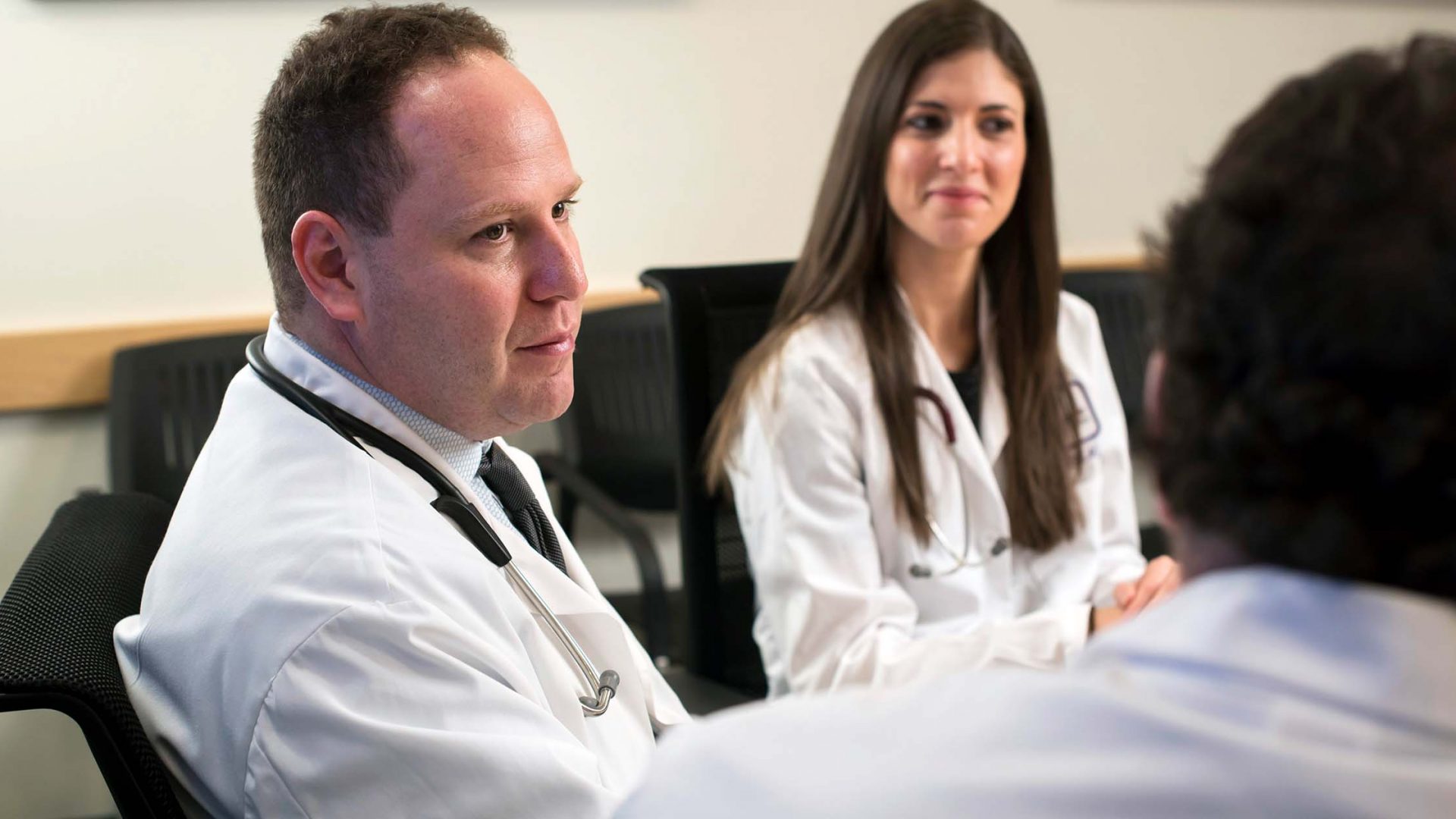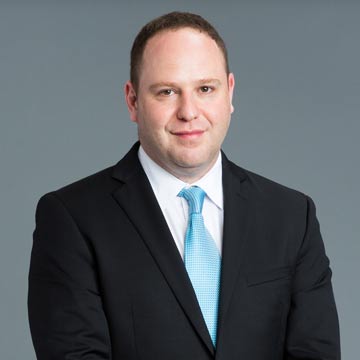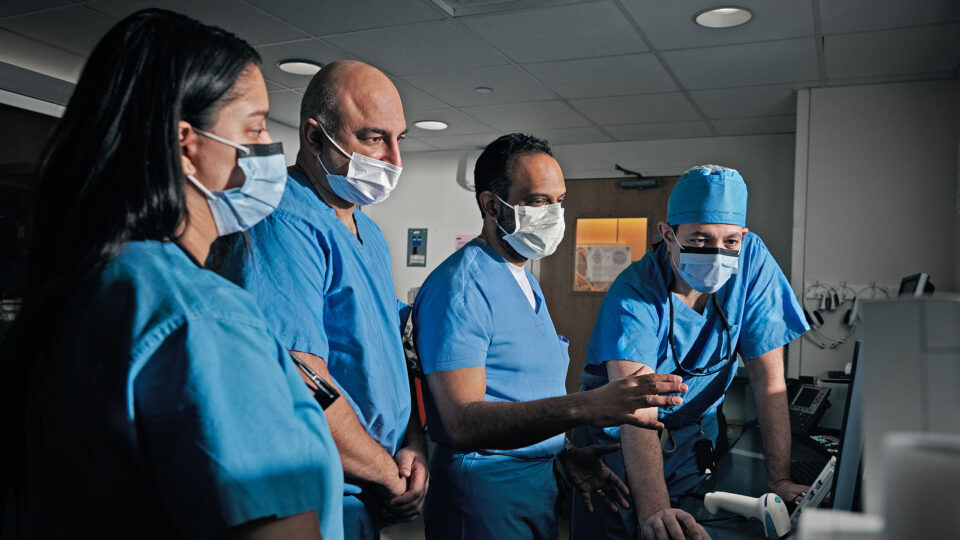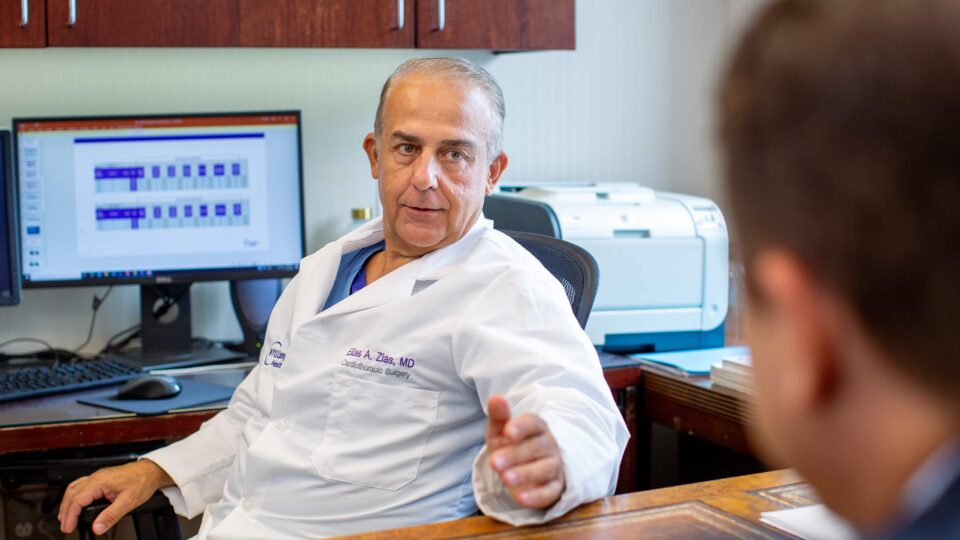As more patients with adult congenital heart disease (ACHD) age into adulthood, care teams must address evolving needs for patient-centered support, says ACHD program director Dan G. Halpern, MD. Dr. Halpern and his colleagues in the Congenital Heart Program are partnering with young adult patients to understand what new services can best support their goals for independence in their careers, lifestyle regimens, and relationships as they manage chronic heart disease.
“We have to learn how to address all of the clinical—and social—aspects of how to transition a kid into an adult. We are responsible for more than their cardiac care. These are young adults that strive to live well-rounded, fulfilling lives,” Dr. Halpern says.
As a tertiary care center and first New York state-accredited comprehensive ACHD center, the Congenital Heart Program—which includes two ACHD transition clinics—is charged with offering a full range of clinical and social services for patients navigating challenging life transitions, including entering adulthood.
“In their 20s, patients still come with their parents and a phone book of medical records. By 25 or 30, these young adults come by themselves and are learning to navigate their own life,” says Dr. Halpern.
“It’s not just the heart that we take care of… There’s a lot of psychology around ACHD.”
Dan G. Halpern, MD
Hearing Unique Anxieties
For young adults with ACHD, unique anxiety and stress can stem from activity limitations that may be unclear. “You have to be a bit parental, the adult in the room who can help adjust their expectations while letting them live their lives,” Dr. Halpern says. The NYU Langone Health program includes an ACHD social worker to help address concerns of patients caught between pediatric and adult worlds.
“It’s not just the heart that we take care of. Just this morning, one of my patients asked me for a hug in the hospital. There’s a lot of psychology around ACHD.”
Recently, COVID-19 has revealed how external factors fuel unique concerns for ACHD patients. In a survey of 100 adults with ACHD, Dr. Halpern and Jodi L. Feinberg, NP, “found an immense amount of anxiety, depression and fear of COVID-19.” Their concerns weighed heavily despite the fact that NYU Langone Health researchers have helped determine COVID-19 mortality in ACHD patients is commensurate with the general population.
“Something jumped here and it spurred us. We redesigned the clinic flow to take care of oxygen saturations, medications, and mental health through carefully scheduled video visits,” says Dr. Halpern.
Letting Patients Reveal Their Needs
Dr. Halpern and colleagues, including Adam Small, MD, have been holding virtual information sessions where ACHD patients of all ages are invited to learn and share about care-related topics. Some of the first sessions focused on COVID-19-related anxiety, exercise regimens, healthy diets, and scars. Dr. Halpern says they are surfacing unexpected insights about the needs of young adult patients.
“The diet one, although nicely done, did not generate much interest,” Dr. Halpern laughs. “Then, everyone was so enthusiastic about the one on scars. They were advising each other about how to tell a new significant other about a sternotomy scar. That seemed to interest them more than the surgery itself.”
Based on this feedback, the ACHD team built a scar initiative with dermatology. Three months after an ACHD surgery, patients are now referred for specialty treatment to minimize scarring.
Creating Peer Community
Dr. Halpern’s team is considering strategies for offering peer-to-peer matching for ACHD patients. The goal is to introduce patients with a specific congenital heart defect—tetralogy of Fallot or single ventricle with Fontan palliation, for example—to each another.
“A lot of patients live in silo. It’s unbelievable how so many patients are eager to speak to people with the same condition.”
The idea evolved out of NYU Langone Health’s collaboration with the Adult Congenital Heart Association. “That group includes MDs and volunteers who themselves have CHD,” Dr. Halpern says.
Looking forward, Dr. Halpern envisions the demand for comprehensive support services within the ACHD community—and how innovative programs can offer those services—will continue to take new directions.
“ACHD patients are perhaps among the most clinically challenging patients that require life-long follow up. We are committed to accompanying them during their journey,” Dr. Halpern says.






